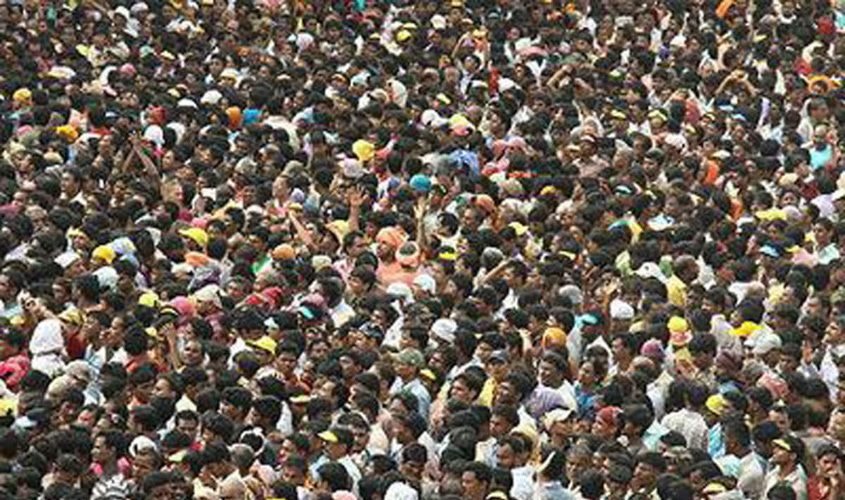However, it may take at least two years to push any legislation.
NEW DELHI: The Centre has began the ground work to enact a law to check population explosion in the country subsequent to Prime Minister Narendra Modi’s Independence Day speech last year
Sources, aware of the development, said there is a feeling within the government that any legislation to check population growth must be based on the facts and data of the latest Census, which is going to take place in 2021.
Since the report of the Census would be available only in 2022, the government would not be able to go for any legislation.
“Before formulating any legislation, we must know the actual position. So the coming National Population Register (NPR) is very crucial. There are certain anomalies in the Census process, as a result of which there are discrepancies in the available data. A report published by a Chinese scholar in 2017 put the actual Indian population figure at 142 crore,” a source said. However, as per official figures, the current Indian population is 137 crore, which is second in the world, after China.
Notwithstanding this wait, the government has started the consultation process with different stakeholders. An NGO has been assigned to carry out preliminary surveys on the reproductive rights of the women. The NGO—Taxab—is already on the job. “We intend to survey 1 lakh women, covering each district of the country, who have three or more children. Preliminary findings suggest that most women are against the third child. They go for it under several kinds of pressure,” Manu Gaur, president of Taxab, said.
Besides studying the issue of reproductive rights of the women, the government is also looking at the issue from the angle of child human rights. If a parent is not able to take care of the family properly, then the child, who comes to this earth because of wrong planning, also suffers, which is against his right to life. This way, it is a violation of his human rights.
Another aspect, which is being looked into is the idea of responsible parenting. A draft Responsible Parenthood Bill was prepared two years ago, which was signed by 125 MPs from different political parties and submitted to then Lok Sabha Speaker Sumitra Mahajan. Subsequently, a senior BJP leader and former Minister Sanjeev Balyan moved a private member’s bill on the issue in the Lower House.
There have been efforts in the past to enact law to check population explosion. But there was a lack of commitment to address the issue, except during the Indira Gandhi regime, when a two-child policy was implemented by Sanjay Gandhi. However, that drew wide criticism from different quarters for being coercive and forced.
In 1994, during the International Convention on Population and Development (ICPD) in Cairo, participating countries agreed to protect the reproductive rights of the women and at the same time also promoting the concept of responsible parenthood, meaning family planning on a voluntary basis. The ICPD convention was against forced sterilisation. Interestingly, India did not give any statement on the issue during the convention. However, the ICPD closing statement also said that the countries are free to formulate their own population policy.
Besides lacking commitment, successive governments also remained evasive on the issue. There are numerous Parliamentary questions on the issue, on which the government have been consistent on its stand that India is bound by the Cairo Convention and it cannot formulate a policy to check population growth. However, sources said, Parliament was misguided as the Cairo Convention did not prevent any country from formulation its policy on the same.
In 1992, the then Narasimha Rao government tabled the 79th Constitution Amendment Bill for making the two-child norm for being eligible to contest the Lok Sabha and Assembly elections. It was moved by M.L. Fotedar, who was heading the health ministry at that time. But, subsequently he resigned from the ministry as well as from the Congress, following the demolition of Babri mosque on 6 December 1992. After that, the Bill was tabled on 18 December. So no discussion could be held on it. The Bill has been pending ever since then.
The Venkatchalaiah Committee, during the Atal Bihari Vajpayee government, was asked to the review the Constitution. This committee, which submitted its report in 2002, spoke about making amendments in the Constitution and advocated small family by amending Article 47 and also for being a responsible parent under the Article 51 (fundamental duties).

